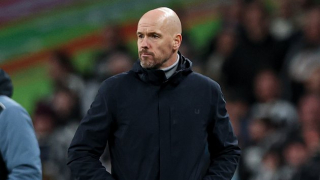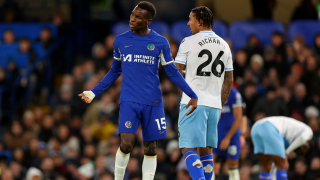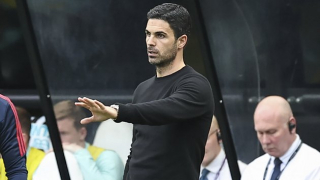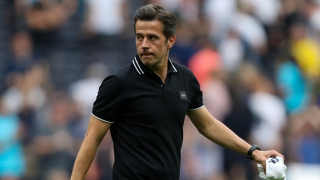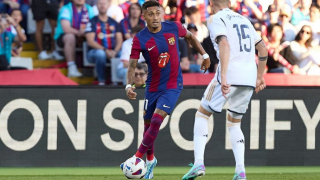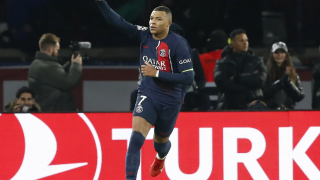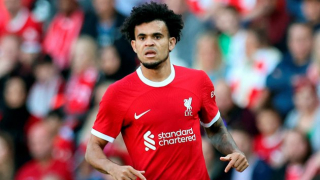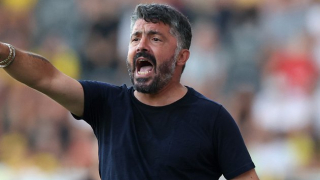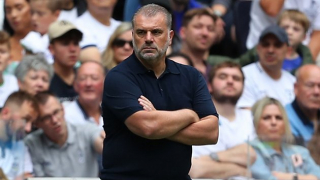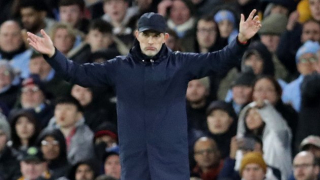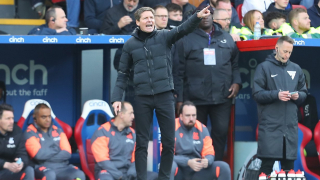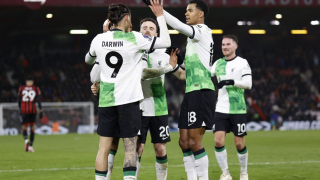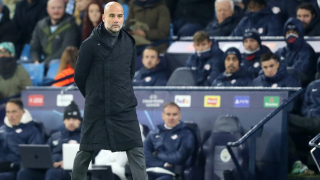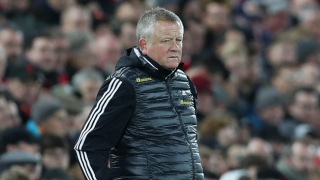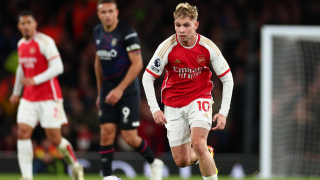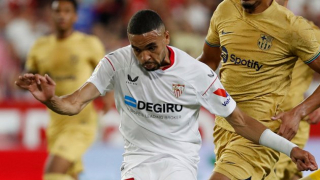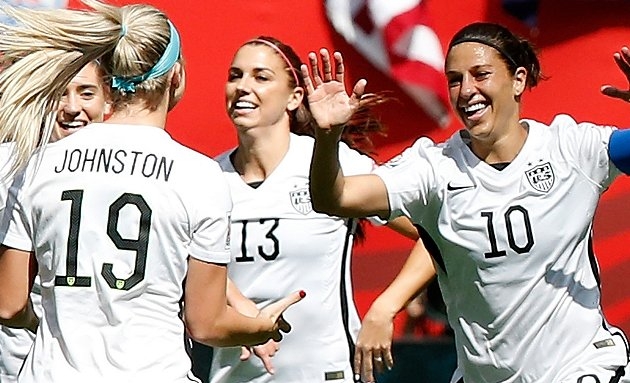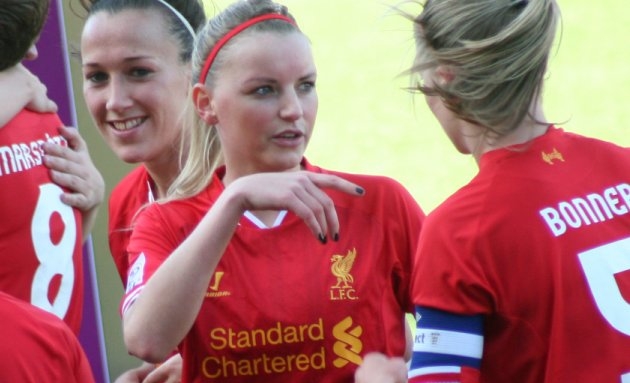We discuss Australia's bid to host the 2023 Women's World Cup, present Netherland's roster for next month's European Championships and review the recently completed 2016-17 League Season in Spain.
Australia bidding for World Cup 2023
A combination of Government officials and Football Federation Australia FFA leaders have announced that they will bid for the 2023 Women's World Cup, with the Australian Government supplying approximately US$760,000 for initial expenses and another US$3 Million coming later, upon reaching pre-set milestones. Over 750 million people around the world combined to watch the 52 matches among 24 teams from the 2015 World Cup in Canada on television.
This is an important announcement by the AFA, which received some heat from women's football supporters during their national women's team player salary contract negotiations in late 2015. At one point, the Matildas' players refused to travel on a post WWC tour to the U.S. Part of the problem with that contract development process was that the men's Player Association had rolled the women's discussions into one negotiation with the men's issues versus the AFA.
Overall, with their long-term commitment to the W-League over 9 seasons and helping the national team to become one of the top teams in the world, this is another positive move by the federation.
Australia would be a wonderful host and women's football fans would travel from around the world to see the matches and tour the country. Australia could also capably host the 2022 U-20 Women's World Cup, which has become an operations test tournament for the full tournament hosts.
A 2023 Women's World Cup would help to advance the visibility of the sport in the country, with the W-League recently being eclipsed in publicity by the new Women's Australian Football League (AFL--which had gates exceeding 10,000 a game to some matches with admission free at some venues), Netball and Cricket leagues.
The W-League has been building systematically for almost a decade now and shouldn't feel minimized by the huge interest in other women's sport codes. Hosting the U-20 and full World Cups in back-to-back years would definitely place women's soccer in the forefront and emphasize the global nature of the sport, particularly versus the primarily domestic AFL.
The 2015 Asian Football Championships for men were held in Australia and drew over 600,000 fans—double the initial estimate—and resulted in a profit of almost US$20 Million, with some being set aside for future developmental or "AFC Legacy" efforts.
Too often in the past there have only been a couple of bidders for the women's championships (i.e. Canada and Zimbabwe for 2015). For 2019, only France and South Korea actually submitted bids while England, New Zealand and South Africa expressed initial interest, as did Japan and Sweden, but Japan decided to focus on the 2019 Rugby World Cup and 2020 Olympic Games, while Sweden focused on European youth competitions instead.
Although FIFA has yet to request official bids, countries that expressed interest for 2023 are centered in Asia/Oceania, with Australia, Japan, Korea Republic, New Zealand and Thailand all announcing interest, along with CONMEBOL's Colombia.
More bidders for Women's World Cups and FIFA Youth tournaments are always a good thing. FIFA took the U-17 Women's World Cup to Jordan and the U-20 to Papua New Guinea last year. Both countries would be hard pressed to stage a 24 team tournament, but besides nations in Western Europe or Australia, the Korea Republic or Japan, a WWC bidder in Eastern Europe, Africa or South/Central America—such as Colombia—would help the women's game to fight stereotypes about its legitimacy versus the men's game.
In addition, FIFA has learned from successful tournaments in Canada, Germany and the U.S. in terms of staging a tournament that ends up with revenues in the black. Consulting to bidding organizations from non-traditional women's football countries would allow more serious bids for these important events.
Netherlands names Euro Squad
Host Netherlands have named a 23 team roster with 9 domestic players on standby. With the European Championship tournament (held once every 4 years) due to start next month, the Netherlands—who failed to advance out of the first round in the inaugural Women's World Cup in 2015 but at the UEFA Championships, finished third in their first appearance in 2009 in Finland and fell in the group stage in 2013 in Sweden—has four players tied with clubs in England, three in Germany, two in France, two in Sweden and 12 from their domestic league—the Eredivise.
23 Player Roster
Lineth Beerensteyn (FC Twente)
Mandy van den Berg (Reading FC)
Sheila van den Bulk (Djurgårdens IF)
Angela Christ (PSV)--goalkeeper
Anouk Dekker (Montpellier HSC)
Daniëlle van de Donk (Arsenal)
Kika van Es (Achilles'29)
Sisca Folkertsma (PSV)
Loes Geurts (Paris Saint-Germain)--goalkeeper
Stefanie van der Gragt (Bayern München)
Jackie Groenen (FFC Frankfürt)
Renate Jansen (FC Twente)
Dominique Janssen (Arsenal)
Vanity Lewerissa (PSV)
Desiree van Lunteren (Ajax)
Lieke Martens (FC Rosengard)
Vivianne Miedema (Bayern München)
Liza van der Morst (Ajax)
Jill Roord (FC Twente)
Shanice van de Sanden (Liverpool FC.)
Sherida Spitse (FC Twente)
Sari van Veenendaal (FC Twente)--goalkeeper
Kelly Zeeman (Ajax)
Standby List
Marjolijn van den Bighelaar (Ajax)
Merel van Dongen (Ajax)
Danique Kerkdijk (FC Twente)
Jeslynn Kuijpers (PSV)
Barbara Lorsheyd (FC Twente)
Myrthe Moorrees (PSV)
Marthe Munsterman (FC Twente)
Paulina Quaye (Ajax)
Siri Worm (FC Twente)
Manon Melis, who starred in Sweden for years and scored 7 goals for Seattle Reign from 16 matches last season—tied for seventh best in the league—retired last year from national team duty and will not be on the field, a pity as she was the standard-bearer for the side for years. Netherlands begins Group A play on Sunday July 16 in Utrecht against Norway, followed by games against Denmark and Belgium neighbors Belgium.
Atletico Madrid wins 2017 League Title in Spain
Spain's Primera Division Femenina de Futbol is among the largest top tier leagues in the world with 16 first division teams and was begun in 1988-89, undergoing a few name changes until its current brand was established for the 2011-12 campaign. Spain advanced to their first ever World Cup in 2015 and lost in the group stage round, finishing 20th overall with 2 narrow losses (1-0 versus Brazil and 2-1 against Korea Republic) and 1 tie (1-1 versus Costa Rica). The reigning Algarve Cup champions earlier this year will line up at the Euros this summer with little pedigree in the tourney, having finished third in 1997 and made the quarterfinals in 2013 in Sweden.
At the league level, Spain's Primera league has typically been seen as a few tiers below Sweden and Germany, with fewer imports. A look at the 2016-17 rosters reveals that imports primarily come from CONMEBOL and CONCACAF, but there are some interesting players and some well-known names from the Americas and from other countries as well.
Atletico Madrid won the title for their second time ever in 2017, their first coming in 1990 when they were known as Atletico Villa of Madrid. Atletico was undefeated with a 24-6-0 record (W-D-L) for 78 points, three ahead of Barcelona on 24-3-3 for 75 points while last year's champions Athletic Club of Bilbao finished in 5th with a 16-5-9 for 51 points. FC Barcelona won four consecutive crowns from 2011-15 and sit one behind Athletic Club in all time titles (5).
Four Spanish nationals finished among the top five goal scorers this past season. Jennifer Hermoso of Barcelona finished with the Golden Boot with 35 goals. Hermosa's only year playing outside of Spain was with now defunct Tyreso of Sweden. Sonia Bermudez of Atletico Madrid was second with 32 tallies. Bermudez has been with the club for two seasons and formerly played at Barcelona and in 2014 with the Western New York Flash in NWSL. In third place Maria Paz Vilas of Valencia tallied 28 goals and Natalia Pablos of Rayo Vallecano—who played with Arsenal and Bristol Academy in the Super League—tied for fourth with Mexican international forward Charlyn Corral of Levante, both of whom had 20 goals.
Key imports included Atletico Madrid's goalkeeper Andreea Paraluta from Romania and Genoveva Anonoma of Equatorial Guinea, who transferred from Suwon in the Korea Republic. Anonoma came to fame while scoring two goals for her country during the 2011 Women's World Cup.
She played in Germany for years, primarily with Turbine Potsdam, before transferring to Portland Thorns in the NWSL for the 2015 season. She scored only once in 12 matches during a turbulent season when the majority of the team missed many games on national team World Cup duty. Failing to make the playoffs, Liverpool native head coach Paul Riley was let go (and promptly won a title the next year with Western New York Flash) and Anonma moved to Korea and then Spain.
For runners-up Barcelona, Danish international defender Line Roddik Hansen (with over 100 caps) played for one year at Olympique Lyon but made only a few appearances in 2016 before moving to Spain. She won three Damallsvenskan titles for Tyreso and Rosengard during a long stint in Sweden.
Brazilian international Andressa Alves joined this season from Montpellier in France and was due to play for Boston Breakers in 2015 but World Cup national team residency prevented her from joining. Ivory Coast forward Ange N'Guessan was a revelation at the 2015 World Cup and transferred from Gintra Universitetas in Lithuania after a short spell in Cyprus with Anorthosis Famagusta, where she scored 17 goals in 13 matches.
Espanol had two South Americans arrive for 2017: Paraguay's 25 year old midfielder Dulce Quintana from Club Sportivo Limpeno and Brazil's Luana Lima from Rio Preto.
Fundacion Albacete's imports included Tomo Matsukawa from Japan and Argentina's 32-year-old forward Andrea Ojeda of Boca Juniors, who played for her country in the 2007 World Cup and 2008 Olympics.
Granadilla Tenerife Sur also had a Japanese import, Ayano Dozono, who had 1 goal in 2 games at the 2010 U-20 World Cup in Germany. Other imports included Luana Spindler from Brail and American Jackie Simpson in defense (University of South Florida). Simpson had an unsuccessful tryout with Orlando Pride in their inaugural preseason in 2016.
Besides Corral, Levante had Ida Guehai from Ivory Coast in midfield—who last played with Kristianstads in Sweden, Portugal's Raquel Infante—who played at Aland United in Norway after time in Italy and Daniela Montoya—who scored the tying goal against Mexico in the 2015 WWC from Colombia. Montoya played last season (2016) but is now back in Colombia with Envigado.
For next season, Levante has signed Mexican defender Greta Espinoza, who was an alternate on their 2015 WWC team; the native of Tijuana played collegiately at Oregon State University.
Sporting de Hueva last season had Mexican international midfielder Nayeli Rangel, a two time Women's World Cup participant (2011 and 2015) who played with Sky Blue FC in NWSL in 2013, along with Guatemala's national team forward Ana Lucia Martinez, who was part of the Houston Dash expansion side in 2014 but did not play in any regular season games.
Sporting de Hueva also had two Brazilians in goalkeeper Thais Picarte and Patricia Sochor. Their European imports included Finland's Jenny Danielsson and Ukraine's Vera Djatel, who both formerly played in Sweden with Kristianstads and Linkopings respectively. Prolific forward Laura Rus of Romania played with the club after a short spell in South Korea but is not yet signed for 2017-18 and could be on the move again ahead of the 2017-18 Women's Champions League season.
Zaragoza had Paraguay's Gloria Vallamayor, who played primarily in Chile with Colo Colo and before that with Everton before coming to Spain.
Santa Teresa has Cameroonian defender Augustine Ejangue for 2017-18. Ejangue played on their 2012 Olympic Side and in Russia with Engergiya Voronezh and WFC Rossiyanka, followed by Scandinavian sides Tyreso (Sweden), Amazon Grimstad (Norway) and Fortuna Hjorring (Denmark).
As the Spanish League improves in visibility and stability, we will see more imports playing in the country, particularly more from South/Central America, but from other European countries and North America and Asia, which will help to improve standards. Barcelona has announced that they will invest in NWSL, which looks likely to be an expansion franchise in an unannounced city next season.
Here is the link to the Spanish Primera Liga: http://au.women.soccerway.com/national/spain/superliga/20162017/regular-season/r37259/
Tim Grainey is a contributor to Tribal Football. His latest book Beyond Bend it Like Beckham on the global game of women's football. Get your copy today.
Follow Tim on Twitter: @TimGrainey

